第16章
But within the limits thus set, within the range over which choice moves, the final principle of selection for judges, as for legislators, is one of fitness to an end."Le but est la vie interne, l'âme cachée, mais génératrice, de tous les droits." 12 We do not pick our rules of law full-blossomed from the trees.Every judge consulting his own experience must be conscious of times when a free exercise of will, directed of set purpose to the furtherance of the common good, determined the form and tendency of a rule which at that moment took its origin in one creative act.Savigny's conception of law as something realized without struggle or aim or purpose, a process of silent growth, the fruition in life and manners of a people's history and genius, gives a picture incomplete and partial.It is true if we understand it to mean that the judge in shaping the rules of law must heed the mores of his day.It is one-sided and therefore false in so far as it implies that the mores of the day automatically shape rules which, full grown and ready made, are handed to the judge.13 Legal norms are confused with legal principles-- Entscheidungsnormen with Rechtssätze.14 Law is, indeed, an historical growth, for it is an expression of customary morality which develops silently and unconsciously from one age to another. That is the great truth in Savigny's theory of its origin.But law is also a conscious or purposed growth, for the expression of customary morality will be false unless the mind of the judge is directed to the attainment of the moral end and its embodiment in legal forms.15 Nothing less than conscious effort will be adequate if the end in view is to prevail.The standards or patterns of utility and morals will be found by the judge in the life of the community.They will be found in the same way by the legislator.That does not mean, however, that the work of the one any more than that of the other is a replica of nature's forms.
There has been much debate among foreign jurists whether the norms of right and useful conduct, the patterns of social welfare, are to be found by the judge in conformity with an objective or a subjective standard.
Opposing schools of thought have battled for each view.16 At times, the controversy has seemed to turn upon the use of words and little more.So far as the distinction has practical significance, the traditions of our jurisprudence commit us to the objective standard.I do not mean, of course, that this ideal of objective vision is ever perfectly attained.
We cannot transcend the limitations of the ego and see anything as it really is.None the less, the ideal is one to be striven for within the limits of our capacity.This truth, when clearly perceived, tends to unify the judge's function.His duty to declare the law in accordance with reason and justice is seen to be a phase of his duty to declare it in accordance with custom.It is the customary morality of right-minded men and women which he is to enforce by his decree.A jurisprudence that is not constantly brought into relation to objective or external standards incurs the risk of degenerating into what the Germans call "Die Gefühlsjurisprudenz,"a jurisprudence of mere sentiment or feeling.17 A judical judgment, says Stammler, "should be a judgment of objective right, and no subjective and free opinion; a verdict and not a mere personal fiat.Evil stands the case when it is to be said of a judicial decree as the saying goes in the play of the 'Two Gentlemen of Verona'
(Act I, sc.ii): "'I have no other but a woman's reason; I think him so, because I think him so.'" 18 Scholars of distinction have argued for a more subjective standard."We all agree,"says Professor Gray, 19 "that many cases should be decided by the courts on notions of right and wrong, and, of course, everyone will agree that a judge is likely to share the notions of right and wrong prevalent in the community in which he lives; but suppose in a case where there is nothing to guide him but notions of right and wrong, that his notions of right and wrong differ from those of the community--which ought he to follow--his own notions, or the notions of the community? Mr.